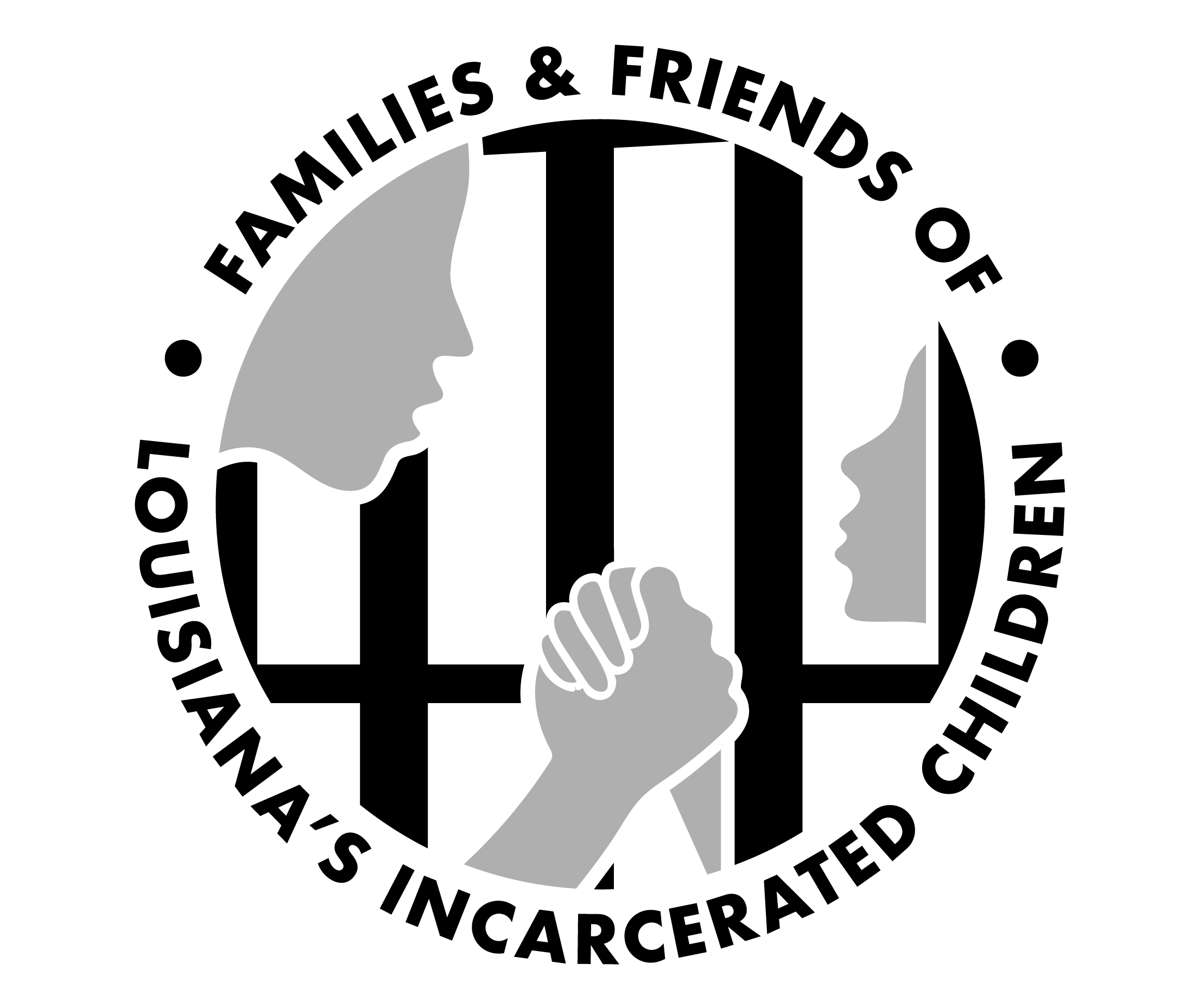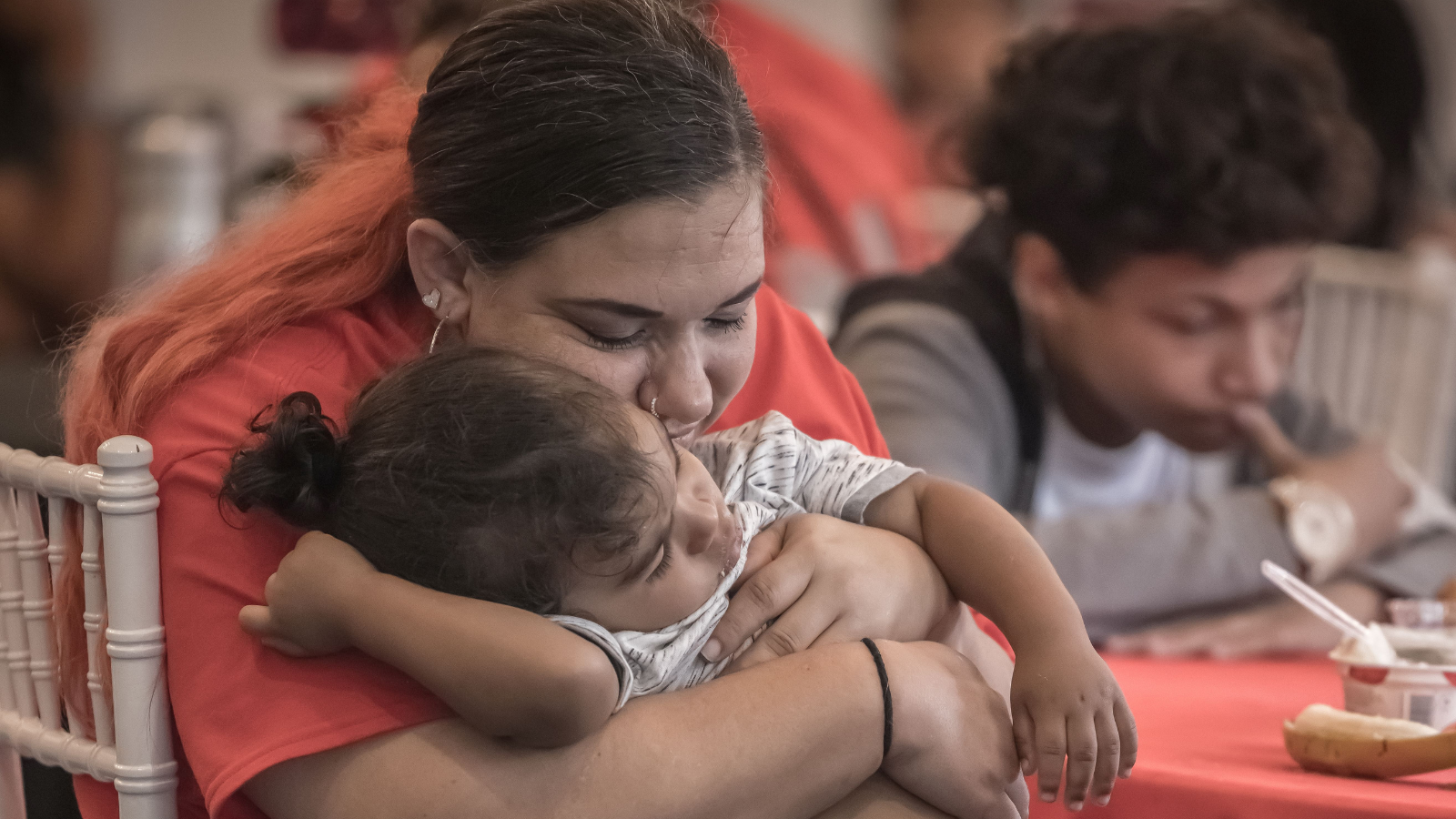FFLIC believes that people are our greatest resources for creating loving and safe communities. Many of our members have been impacted by the harsh and ineffective carceral systems we seek to change, and it’s their wisdom and experience that drives our vision for lasting solutions.
Amanda, a member of our Lake Charles Chapter, has been advocating to get her children the education they deserve. “People need to be held accountable,” she says. She starts with schools because she knows firsthand how lack of care and resources can create lifelong impact. Her oldest son struggled with mental illness and learning differences, but was not given access to the care that could have supported his education. Instead, he was suspended and eventually placed in juvenile detention. Now, he has a diagnosis of schizophrenia, depression, and ADHD, but at 23 is already in the adult incarceration system.
Children who are placed in detention centers are 23% more likely to enter adult prison, and often that pathway begins with suspensions from schools, especially for children who need extra support. Amanda notices a distinct difference in the way the school treats kids even among her own children. “The ones that had issues [at school] had mental problems: ADD, ADHD,” she says. “The ones that didn’t have trouble were calm, cool, collected.”
Black children in particular are getting pushed out of school through suspensions at nearly 3 times the rate of their white peers, and children with mental illness or learning differences are particularly vulnerable. Amanda believes children need “more counseling, more programs” and that schools have an opportunity to better support youth who need extra help. “We should be learning this in school: How to deal with our emotions when something happens,” she says.
Often, schools will say that they don’t have the money or resources to provide mental health support or the Social Emotional Learning training teachers need, but the reality is that the money is there, it’s just given to ineffective and punishing systems. “Our government is failing us. If you know [it costs] 12k per year per student and 100k per year per student if they’re locked up, then you should put more money in the school system.” In Louisiana, one in three children attend a school with a police officer but without a counselor, nurse, psychiatrist, or social worker. With Amanda, FFLIC fights for budget transparency, evidence driven programs, and resources directed back into communities.
Amanda’s advocacy work includes calling schools and holding them accountable for the ways they are failing children and families because “It’s bigger than us, it’s bigger than our community…we need help from our officials,” she says. Despite the many obstacles she has faced to get her children an education, Amanda hasn’t given up. Today, with the support of FFLIC, Amanda envisions new futures for all children and continues her incredible advocacy efforts because, she says, “I hope one day we can change it.”



